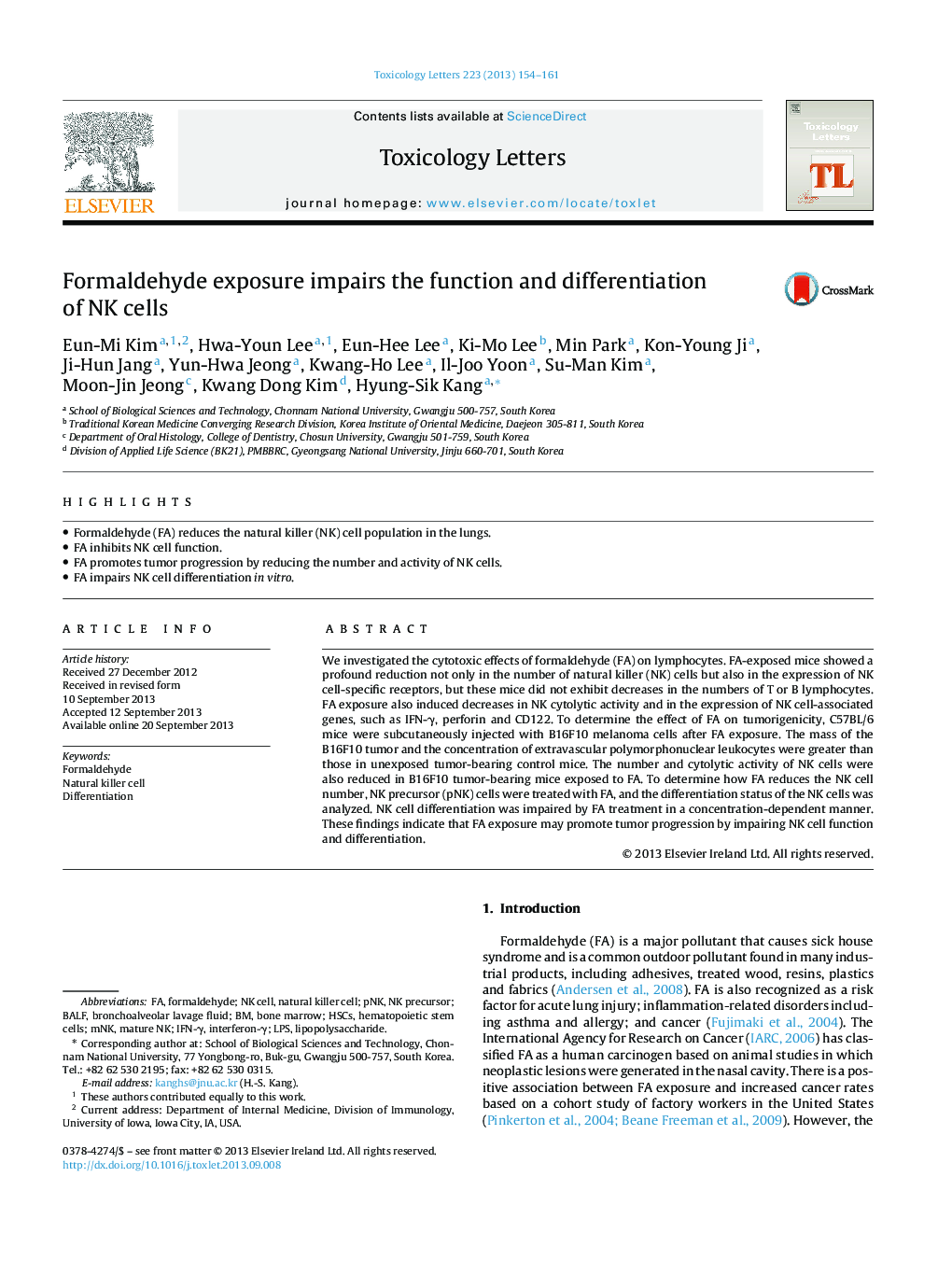| Article ID | Journal | Published Year | Pages | File Type |
|---|---|---|---|---|
| 2599137 | Toxicology Letters | 2013 | 8 Pages |
•Formaldehyde (FA) reduces the natural killer (NK) cell population in the lungs.•FA inhibits NK cell function.•FA promotes tumor progression by reducing the number and activity of NK cells.•FA impairs NK cell differentiation in vitro.
We investigated the cytotoxic effects of formaldehyde (FA) on lymphocytes. FA-exposed mice showed a profound reduction not only in the number of natural killer (NK) cells but also in the expression of NK cell-specific receptors, but these mice did not exhibit decreases in the numbers of T or B lymphocytes. FA exposure also induced decreases in NK cytolytic activity and in the expression of NK cell-associated genes, such as IFN-γ, perforin and CD122. To determine the effect of FA on tumorigenicity, C57BL/6 mice were subcutaneously injected with B16F10 melanoma cells after FA exposure. The mass of the B16F10 tumor and the concentration of extravascular polymorphonuclear leukocytes were greater than those in unexposed tumor-bearing control mice. The number and cytolytic activity of NK cells were also reduced in B16F10 tumor-bearing mice exposed to FA. To determine how FA reduces the NK cell number, NK precursor (pNK) cells were treated with FA, and the differentiation status of the NK cells was analyzed. NK cell differentiation was impaired by FA treatment in a concentration-dependent manner. These findings indicate that FA exposure may promote tumor progression by impairing NK cell function and differentiation.
